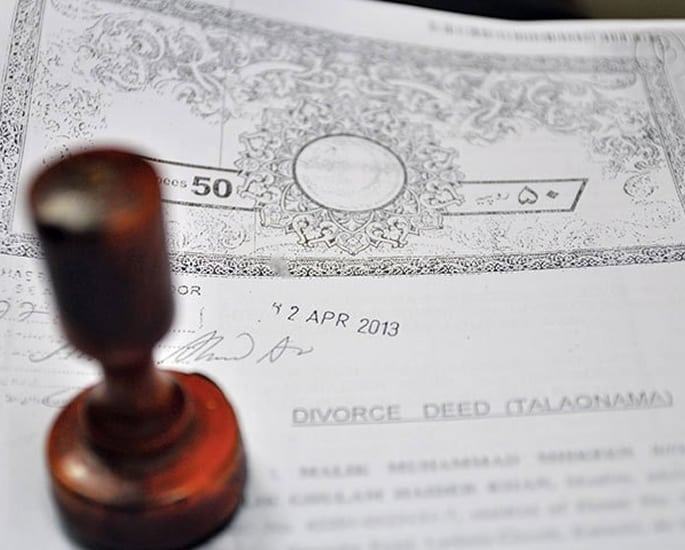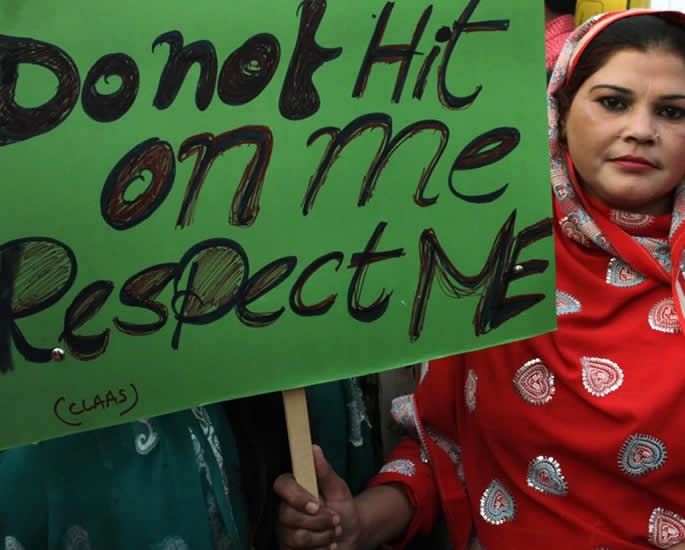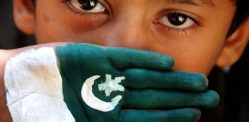"To anyone suffering depression, please ask for help"
Pakistan is a sovereign independent state where people follow many of its cultural traditions and customs. However social stigmas across many levels continue to haunt Pakistani society.
Several of these social stigmas are deeply rooted in society.
Many people and tribes in Pakistan are still stuck in their old ways and are not ready to adopt change.
Areas affecting individuals and people the most include social inequalities, health, marriage, education. domestic and working life.
DESIblitz presents 10 social stigmas that still exist in Pakistan:
Working Females are ‘Characterless’
Females getting a good education and then working is seen as a normal thing in most societies.
This is because it can be hard for a single person to support a family. However, this does not necessarily apply to all parts of Pakistan.
In the major cities of Pakistan, females are working in some sectors. But that cannot be said for the smaller towns.
Many of the women who do work are single unless they work in a high profile job such as a Dr and so on.
Once a woman gets married, her husband and in-laws most often do not want her to work. They consider it as a shameful act which will tarnish the image of the family.
Instead of fulfilling their dreams, most of these women in Pakistan have children and become full-time housewives.
In the northern areas, it gets worse as many women do not even step out of the house due to family restrictions.
Pakistan claims to promote a level playing field, yet that does not appear to be the case always.
Even those who do work and earn through acceptable means are commonly referred to as ‘characterless’ or ‘Behaya’ (shameless).
Independent working women are subject to criticism from society, especially from the conservative elements.
Limited Career Options
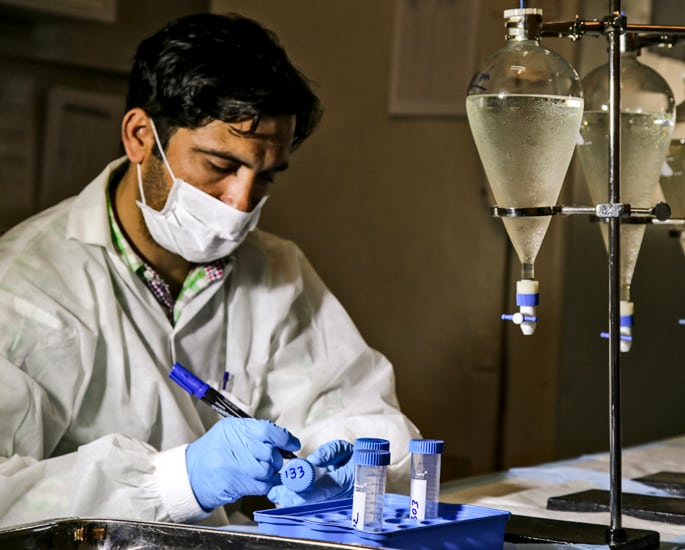
Many democratic societies promote creativity and inspirational work. Everyone is allowed and free to choose their field of interest.
According to a report published in the Gulf News, Pakistan ranks in the seventh position when it comes to producing scientists or engineers. But Pakistan falls way behind in art related subjects.
Parents have a very traditional approach to their children’s career. Young people mostly have two options in Pakistan. Either they are asked to be an engineer or doctor.
No doubt these two fields are outstanding and pay well. But is your child ready to study engineering or does he/she want to be a musician?
If a student opts to take an arts-related subject, everyone automatically assumes they are not bright enough.
People in Pakistan mainly consider those who study science-related subjects or engineering as the most intelligent. Also, the medical field is regarded as more respectable in comparison to music or the showbusiness.
Shiza who studies at Lahore University of Management Sciences (LUMS) exclusively tells DESIblitz of her experiences.
“I wanted to study Film and TV at the National College of Arts (NCA) in Lahore. But with my father being an Engineering, he virtually forced me to undertake a Bachelors degree in Chemistry.”
Shiza is not alone, as many students are in a similar situation. Those who have been pressurised by their parents are obviously not happy with the choices enforced upon them.
Hence with most young people opting for traditional careers, creative courses and careers are limited.
Co-Education

Most men in Pakistan want a lady doctor to carry out any medical procedure on their wife. Similarly, most dad’s are hesitant to send their daughter to a school promoting co-education.
With the exception of a few institutions, the education sector in Pakistan is relatively weak. Limited resources do not allow separate institutes for girls in some regions.
Most females are just ‘matric pass’ because their family will not allow them to study in high schools or colleges with males.
In the northern areas of Pakistan or within some smaller towns, it is against local traditions for females to study alongside males. Many families don’t even allow a male teacher to instruct their daughters.
There have been several debates on whether co-education should be allowed.
Those in favour believe there are no benefits of segregating students. Plus co-education harmonises the opposite genders.
Whereas others think separate schools are best as it avoids the boyfriend/girlfriend culture. Rejecting the co-education model, a teacher from Karachi says:
“I’ve been associated with the education for quite a few years and teaching is much more than a profession to me
“During the last few years…. every new class is worse than the previous one…. and I don’t think that anyone should send their children to the co-ed schools any more……..
“My daughter goes to a girls-only school… and I have no intention what so ever to ever send her to a co-ed educational institute….”
In the past, many organisations have rejected proposals or called for a complete abolishment of co-education schools.
Divorced Woman
Sometimes marriages do not work for various reasons. People consider a divorced woman a complete disgrace and is socially frowned upon. Even a woman’s own family can blame her for the divorce.
Such is the hypocrisy, that if a man gets divorced, it is not such a big deal. He can marry and move on with his life.
Those with a good education think no different. Without knowing all the facts, if a marriage fails, the usual comments from people are “She should have adjusted” or “She must be of bad character.”
Divorce can ruin the image of a woman. Resulting in marrying again and if they do, it can be a mismatch.
Even if a divorced woman goes back to live with her parents, she cannot live peacefully. Parents of a divorced woman feel the burden and are forced at times to marry her off again.
At times a genuine man is willing to accept a divorced woman, yet his family opposes it. These families prefer an unmarried woman, preferably who is a virgin.
Despite the many hardships a woman faces, she may still be blamed when it comes to a divorce.
Some people also assume that if a woman is too career minded, that is the main reason for a divorce.
In other words, if she neglects the home, it could trigger trouble in her marriage. Yet there are many women who balance personal and work life.
The stigma attached to a divorced woman also affects the next generation. Many people don’t want to marry a divorced woman’s daughter.
The classic lines include: “Why did you get divorced and where is the father.”
Children are the Responsibility of a Woman

Within Pakistani society, men are predominately responsible to provide food on the table. Women, on the other hand, are expected to guide and raise the children.
In spite of a good woman teaching and nurturing her child, if things go pear-shaped, she is often the target of many.
In the case of a son going astray, it is regarded as the woman’s fault for spoiling him.
And if a daughter is up to no good, the woman again can be blamed for giving her too much freedom.
Just because men work hard, some of them feel that it is the entire responsibility of the women on how their kids turn out.
Such men have to accept that both parents are responsible for their children until they reach an adult age.
At times a father needs to lay down the rules and teach his children the ups and down of life.
It’s ironic when a child is on track, society automatically feels that a woman is naturally doing her job. And when things don’t go right, she is in the firing line.
Barring miracles or advanced sciences, it takes two to create a child. Thus a father has a responsibility too.
The woman is often made a scapegoat when things don’t pan out as expected.
Gender Inequality
In Pakistan, people are taught to treat both genders equally. Yet gender discrimination is the most common social stigma in the country.
Main sectors of gender discrimination in Pakistan include education, sports, politics, mass media, marriage rights and lives.
In 2016, a bill was even proposed in Pakistan that included a statement, “A husband should be allowed to lightly beat his wife if she defies his commands”.
This was a retaliation against a law passed in the state of Punjab, which was called Punjab’s Protection of Women against Violence Act of 2015, to help women against abusive husbands.
In 2018, according to a United Nations report, Pashtun, Saraiki and Sindhi women under the age of 18 were the most marginalised.
The ratio of women attending higher education is far less than that of men.
Society has established boundaries around their thinking approach. Women are treated like servants in rural areas.
Some of the young girls from the rural parts of Pakistan have never seen a book or even entered a school.
Parents are ready to spend a lot on a son’s education. But that is not always the case when it comes to their daughter.
Pakistan should take a lead out of Napoleon who said: “Give me an educated mother, I shall promise you the birth of a civilized, educated nation.”
Some women are not even allowed to go out on their own, yet the men can do whatever they want.
Honour killings are still part of the fabric in Pakistan. Murders of women like Qandeel Baloch by their own families still highlight a taboo of inequality.
Forced marriages are still practised and arranged marriages, especially in rural areas with large age gaps, are common too, where the bride is very young compared to the man.
A single mistake by a woman can make her life a hell. Whereas a criminal son can still be the star of his parents.
It’s as if men know it all and women are just like objects to play with.
With the growth of big companies like Telenor who are giving equal opportunities, things are improving. But a lot needs to be done across the board.
The Stigma of Female Children
Many marriages fail due to the sex of the newly born child. The boy is the mark of power in Pakistan. If a man has more male children, he is considered more powerful in society.
It is a social stigma to have all female children in Pakistan. Instead of hoping for a healthy baby, some families are more concerned as to who will be the next heir to the throne.
Many parents want a baby boy as a baby girl is considered bad luck. Even some grandparents are more proud when a boy is born in comparison to a girl.
When a woman is pregnant, statements such as “Are you having a baby, Hope its a boy” is very common.
When a baby girl is born, some parents in distress also say: “Yeh peda hone se pehle he mar jaati (I wish she had died before she was born).
Giving birth to multiple baby girls is one reason which leads to divorce.
This stigma is also attached to the issue of exchanging dowry. The minute a girl is born, the first thing that comes to her father’s mind is paying a hefty dowry.
This does not apply so much with decent educated families. But it remains a big talking point amongst poor families from rural areas.
On average it costs a family over a million pounds for their daughters’ wedding in Pakistan.
Female infanticide and abandoning is another area linked to this stigma. If you get the chance watch Discarded Daughters, a Viceland documentary hosted and co-produced by Maheen Sadiq.
Women have to bear the brunt as they are often abused after giving birth to a female. Apparently, the fault lies with them.
Some fathers can completely detach themselves from their daughter, following birth.
Mental Health
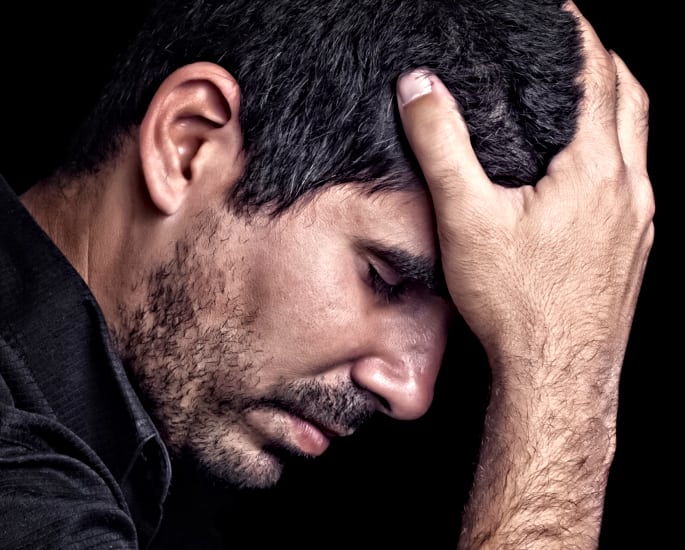
Physical health is given more priority in Pakistan over emotional well being. The mindset in Pakistan is that you are only meant to see a psychiatrist if you have a brain tumour.
The young generation is forced to deal with depression and mental health issues like a normal daily task.
Parents don’t think of it as a genuine problem too. What they don’t understand is that it can lead to other serious illnesses. Some even contemplate or commit suicide.
While mental health sufferers often feel worthless, families don’t help their cause as they sometimes think they are just crazy.
To make matters worse, some families believe the person in question is possessed by a jinn or other evil force.
In reference to a person potentially suffering from a mental health disorder, a commonly heard line is: “Iss par toh Jinn ka saaya hai” (He/she is possessed by the devil).
The Journal of Pioneering Medical Sciences provides alarming statistics. It states depressive and anxiety conditions account for 34% of the Pakistani population. Also, 90% of suicide cases include some form of depression or mental disorder.
The Pakistan media also contribute towards the stigmatisation of mental illness with people portrayed in a light-hearted manner. This kind of cruel treatment makes things worse for people suffering from mental illness.
Shaniera Akram, wife of Pakistani legend Wasim Akram highlighted this important topic tweeting:
“To anyone suffering depression, please ask for help. It’s 2018, you don’t have to walk alone anymore.
“It’s a constant battle. Breaking the stigma in Pakistan is hard enough. We do not have enough being done for people with mental illness.”
“It’s one thing to encourage people to put their hand up and ask for help but it’s another not to have the help available for them to access,” she adds.
Dowry means Happy Marriages
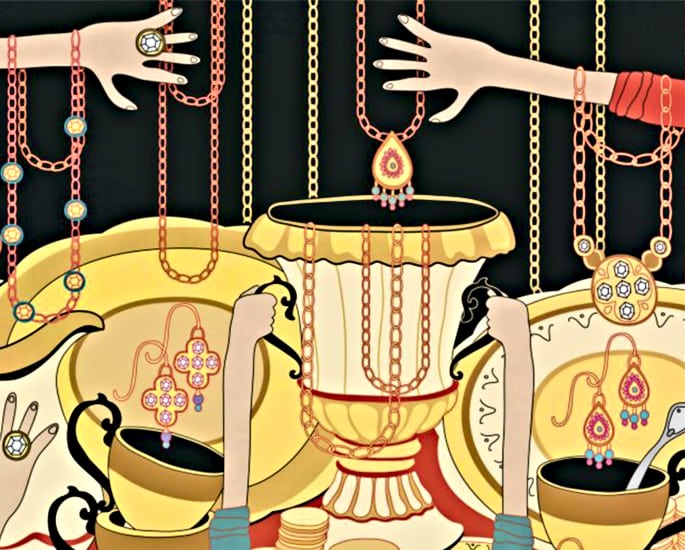
Dowry remains a curse and big burden across parts of Pakistani society.
The new generation is strongly against this social stigma, which has been acknowledged for many years as a cultural tradition.
Described as a ‘pre-mortem inheritance,’ many families believe they have to transfer wealth to the groom and his family when getting their daughter married. This could be in the form of money, a car and other household goods.
For some, a marriage becomes a distant dream if dowry is difficult to arrange.
The Gillani Research Foundation conducted a survey on this. It revealed 56% of Pakistanis believe that without the exchange of dowry, it is impossible for females to get married in Pakistan.
The dowry concept goes against the welfare of a woman. Every father tries to facilitate his daughter as much as possible so she can live happily. But sometimes they are unable to meet the demands of the dowry.
If a poor man is unable to exchange the dowry, his daughter is likely to face serious problems with her husband and in-laws post marriage.
No exchange of dowry often leads to constant physical and emotional abuse against a woman. Many women are eventually divorced or subjected to death.
Such typical deaths are termed as ‘dowry murders,’ because they are caused by this practice.
Legislation on this matter is often criticised. But ultimately the onus is on Pakistanis who have held onto this practice, which is unfair to many underprivileged people
Meanwhile, if a dowry is paid, a woman can have a happy marriage. She will not be taunted for the rest of her life.
Domestic Duties of Men

Husband and wife are two wheels of the same vehicle. For both, finding a balance in life is important to live in peace and harmony. Both have equal responsibilities and duties.
In reality, women have to take care of a complete home, including looking after the children and being attentive to her husband and in-laws.
With Pakistani women having so many duties one would think that the men would chip in at home.
But in Pakistan, gender roles are specific. The classic thinking is that men are mainly responsible to work outside the home. Whereas the women take care of daily domestic tasks.
In Pakistani society, it is seen humiliating or degrading if a husband is helping his wife in the kitchen. This can lead to questions of their manhood.
Even if a man is free, from the very outset he is not expected to carry out any domestic duties. The only exception being minimal DIY work.
A man carrying out domestic chores is seen as a softy or being wrapped under the thumbs of a woman.
When living in a joint family, even the mother-in-law will take it negatively if her son is asked to help with domestic work.
This mentality is changing in the larger cities. But it remains a big problem amongst the poor.
Besides the above, being unmarried is also a social stigma which many men and women have to deal with.
Pakistan is turning a new leaf and making progress in some areas to eradicate these stigmas.
Social activists are trying to educate the new generation about these social stigmas. With Imran coming into power, these social stigmas will hopefully be tackled further.






















































